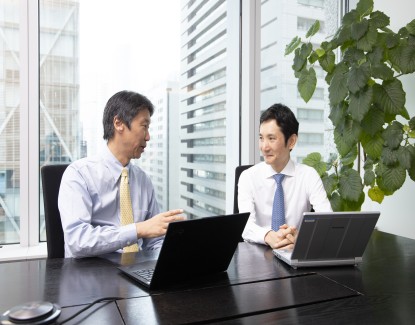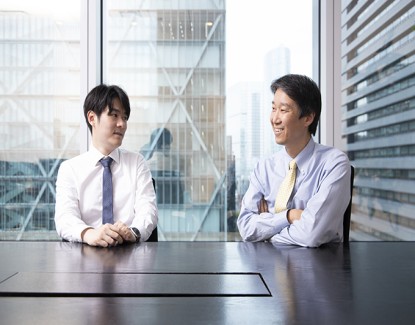Market Commentary and Fund Performance
Masa Takeda of Tokyo-based SPARX Asset Management Co., Ltd., sub-advisor to the Hennessy Japan Fund, shares his insights on the market and Fund performance.
-
 Masakazu Takeda, CFA, CMAPortfolio Manager
Masakazu Takeda, CFA, CMAPortfolio Manager
Fund Performance Review
For the month of October 2020, the Fund rose 0.09% (HJPIX), while the Tokyo Stock Price Index declined 1.92%. The Russell/Nomura Total Market™ Index, the benchmark for the Fund, declined 1.50% over the same period.
Click here for full, standardized Fund performance.
Among the best performers were our investments in Shimano, Inc., global bicycle parts manufacturer, Fast Retailing Co., Ltd. the operator of “UNIQLO” brand casual wear stores, and Sony Corporation, a diversified consumer and professional electronics, gaming, entertainment, and financial services conglomerate.
As for the laggards, Takeda Pharmaceutical Co. Ltd., a multinational pharmaceutical company, Terumo Corporation, Japan’s largest medical device manufacturer and Mercari, Inc., an e-commerce company operating marketplace applications, including “Mercari,” its core product, detracted from the Fund’s performance.
Shimano’s shares soared following its third quarter earnings release, which confirmed a sharp rise in global bicycle demand after the COVID outbreak. As we wrote in the July commentary, management has been upping capital expenditures significantly over the last eight years (even as the industry growth stagnated from FY2016 to FY2019). As such, with the newfound COVID-driven volume increases, strong operating leverage can be expected going forward.
Nidec also rose on the back of upbeat earnings guidance. The company is well-positioned to ride the wave of global electric vehicle penetration through its traction motor & eAxle business. Founder/Chairman Shigenobu Nagamori has long been extremely bullish on this trend by aggressively investing into this burgeoning space.
Shares of SoftBank Group have been bucking the broader market trend as well, rising nearly 50% since the start of the year. Its market cap has swelled thanks to its unprecedented share repurchasing program as well as the continuous rally in shares
of its key investment holdings. Founder/Chairman/CEO Masayoshi Son has been recently criticized for the Vision Fund’s poor investment performance, but he remains firmly committed to transforming his company into an investment company focused on artificial intelligence.
What all of these companies have in common is their owner-operator company structure, which allows them to stay focused on their long-term goals. There have been numerous studies of owner-operator companies’ superior long-term share price performance relative to the market. As a long-time observer of Japan’s corporate landscape, we are also strong believers in this phenomenon.
This is the reason behind the Fund’s many investments in such companies. Our definition of owner-operator includes the following types:
1. Founder remains on as a shareholder and serves as Chairman/CEO
a. NIDEC, SoftBank Group, Fast Retailing, Mercari
2. Founding family remains as a shareholder and a member from the family serves as Chairman/CEO (usually a second generation or onward leader)
a. Shimano, Unicharm, Rohto Pharmaceutical
3. Founding family or founder himself remains as a shareholder and a member of the family/founder retains a board seat (but no longer involved in day-to-day management)
a. Keyence
Collectively, these companies account for 35%
to 40% of the portfolio in terms of number of the Fund’s holdings and nearly half of the portfolio as a percentage of the overall portfolio weightings.
An owner-operator structure is not without risks, especially if the company has been led by a charismatic founder. When such a founder steps down and is succeeded by an unproven manager, investors become uneasy. Some get skeptical and determine that good times are over causing them to abandon shares.
Our attitude is more lenient. That is to say, when a new CEO is appointed, we would see him or her
as an able manager ready to take on the top job provided that the new CEO has been groomed by the founder over a long period of time. In most cases, when a company goes through a leadership change, the soundness of the decision can only become evident several years later at the earliest. Meanwhile, the company’s financial performance can be carried forward by the inertia set by the predecessor CEO. This provides ample time to evaluate the new CEO through observing his or her key business decisions and execution.
History shows that severing ties with a long-held position upon the departure of a long-admired CEO is not always the right thing to do. Take Apple as an example. Since Oct. 2012 (a year after the iconic founder Steve Jobs passed away), its share price has increased nearly fivefold under the current CEO Tim Cook’s stewardship.
Our charitable stance is also reflected in the way we vote at general shareholder meetings of the Fund’s owner-operator companies. For example, about 10 years ago takeover defense measures were widely used by Japanese companies. Anti-takeover mechanisms such as poison pills were frowned on by shareholders as it was often interpreted as a protection of management’s self-interest.
We approached this differently. When another company swooped in and tried to take over our investee, we viewed it as an unwanted event that would cap the upside on our investment if it were to be done via cash acquisition. As long-term investors, our intention is to own the businesses as long as we can such that our capital can be compounded indefinitely.
In other cases, the potential acquirer may propose a share-swap deal. Here, the shares of the acquirer we would receive may not fit our investment criteria of an “attractive business.” We would rather have management fend off the proposal through a takeover defense than receive shares in a company which we would never consider investing in. Hence, if the company wanted to introduce these measures, we generally concurred (by no means I encouraged them to do it if there was no such proposal from management, however). We used the past tense to introduce takeover defense measures as these have declined significantly over the last decade in Japan. Many of these have been voluntarily withdrawn by companies in light of the corporate governance reform initiatives promoted by the Abe government.
Click here for a full listing of Holdings.
- In this article:
- Japan
- Japan Fund
You might also like
-
 Portfolio Perspective
Portfolio Perspective
Japan Small Cap FundA Focus on Japanese Small-Caps Making Big Corporate Improvements
 Takenari Okumura, CMAPortfolio Manager
Takenari Okumura, CMAPortfolio Manager Tadahiro Fujimura, CFA, CMAPortfolio ManagerRead the Commentary
Tadahiro Fujimura, CFA, CMAPortfolio ManagerRead the CommentaryThe Portfolio Managers discuss their view of the Japanese small-cap corporate landscape amid many shifting factors, including a new Prime Minister, finalized tariff situation, currency volatility, and attractive valuation environment.
-
 Portfolio Perspective
Portfolio Perspective
Japan FundCompelling Japanese Opportunities Amid Attractive Valuations
 Masakazu Takeda, CFA, CMAPortfolio Manager
Masakazu Takeda, CFA, CMAPortfolio Manager Angus Lee, CFAPortfolio ManagerRead the Commentary
Angus Lee, CFAPortfolio ManagerRead the CommentaryThe Hennessy Japan Fund Portfolio Managers highlight the effect of the new Prime Minister on the economy and market and how holdings were affected by the final trade agreement. They also discuss currency volatility, valuations, and the most compelling opportunities as we end 2025.
-
 Investment Idea
Investment IdeaCompelling Valuations in Japan
 Masakazu Takeda, CFA, CMAPortfolio Manager
Masakazu Takeda, CFA, CMAPortfolio Manager Angus Lee, CFAPortfolio Manager
Angus Lee, CFAPortfolio Manager Tadahiro Fujimura, CFA, CMAPortfolio Manager
Tadahiro Fujimura, CFA, CMAPortfolio Manager Takenari Okumura, CMAPortfolio ManagerRead the Investment Idea
Takenari Okumura, CMAPortfolio ManagerRead the Investment IdeaJapanese equities are currently trading at compelling valuation levels compared to other developed equity markets around the world and relative to their own historical averages. We believe the Japanese market deserves a closer look.
